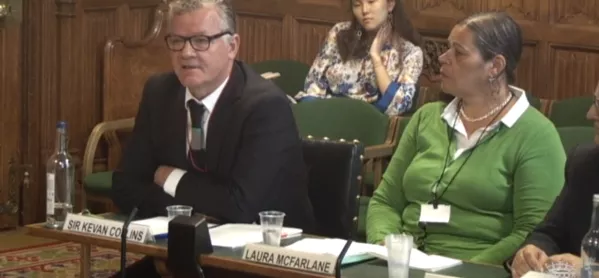The government’s early years policy is heading for a “car crash”, an education expert has warned MPs.
Sir Kevan Collins, chief executive of the Education Endowment Foundation, said offering 30 hours of free early education to relatively well-off families will widen the attainment gap between disadvantaged children and their more affluent peers.
Speaking today in a Commons Education Select Committee inquiry looking at life chances, Sir Kevan told MPs: “We’ve got a bit of a car crash on our hands. The evidence is clear that high quality early education makes a difference and we’re giving the most high-quality education to people who in a sense already have advantage.
“How that won’t lead to widening the gap is difficult to see.”
Working families with three- and four-year-olds are eligible for 30 hours of free childcare as long as each parent earns no more than £100,000. The policy has been criticised for excluding the poorest families who may be out of work.
The Sutton Trust has called for more to be done to ensure that the poorest children have high-quality care.
Entrenched disadvantage
Sir Kevan told MPs today: “When children are 5, [they] have a 4.5 month gap in their learning. Now we are giving extra hours for more learning to people who already have advantage. That’s a problem.
“The other thing we know is high-quality early years education matters most to those who come from more disadvantaged communities - they make even more from it.”
The inquiry heard that some local authorities fund extra hours for disadvantaged children, but this was becoming financially difficult due to the costs of funding the 30-hour policy.
“I think one unintended consequence of policy [is] we’re seeing children who are disadvantaged who were getting more than 15 hours having it reduced, so that other people can have a place who are getting their 30 hours.
“That has to be a problem for all of us in the long run if you are trying to narrow the gap.”
The education committee is looking into the impact that early years education and social policy have on determining children’s life chances.




